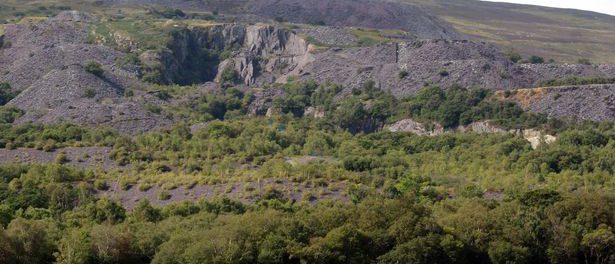Green light for £100m Snowdonia energy scheme

The government has approved plans for a £100m hydropower project in Snowdonia.
Business and energy secretary Greg Clark has granted a development consent order (DCO) for the Glyn Rhonwy pumped storage hydropower project, the UK’s first onshore hydro scheme to go through the Planning Act 2008.
Now that the DCO has been granted, construction is expected to start within the next 12 months once the DCO requirements have been discharged.
Using two disused slate quarries near Llanberis in North Wales, the 99MW project will generate electricity, as well as store energy that can be used to help balance the national grid at times of peak energy use. Water will be transferred via a large diameter tunnel between the two reservoirs using reversible pump turbines, both to generate electricity when required at peak times and to use electricity to fill the upper reservoir when power demand is low. An underground power plant will be constructed in a deep shaft next to the lower reservoir.
The scheme is similar to Dinorwig’s Electric Mountain across the valley.
Among concerns raised during consultation on the project was the risk of ordnance being disturbed during construction. The Ministry of Defence used to store munitions in the Glyn Rhonwy quarry system. It was decided that while unknown ordnance was certainly likely to be present in the development area, there was no evidence that any of it would be biological or radiological in nature and so could be sorted out as and when anything was found, subject to an outline ordnance management plan being agreed.
Due to its previous slate mining history, the site also has more than 400 archaeological features, as well as multiple protected species.
Construction consultant Aecom has been involved with the scheme for more than six years, delivering a range of engineering and environmental services for client Quarry Battery Company and its subsidiary Snowdonia Pumped Hydro. Aecom worked on the project’s environmental impact assessment, engineering feasibility, preliminary engineering designs, technical studies for the grid connection application and highways design.
Quarry Battery managing director Dave Holmes said: “We are really pleased that this excellent scheme has been given DCO consent today by the government. Electricity storage is the natural partner to renewable generation and the missing piece of the UK low carbon strategy. Aecom has been a long-term supporter and strategic partner for the scheme, helping us to achieve today’s DCO. We look forward to continuing this relationship as the project progresses.”
The project was previously approved as a 49MW scheme by Gwynedd Council, but the energy market reform changed the financial viability of the project and it was updated for a DCO application. The physical nature of the updated scheme has not increased from the original design, but it now includes more powerful turbines.

